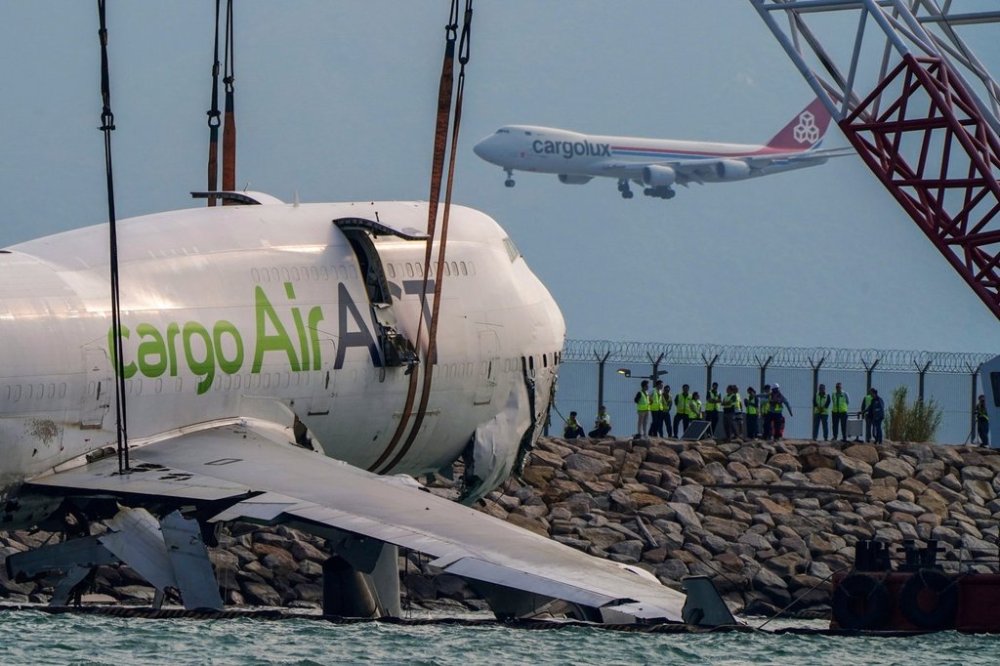Engine accelerated after landing, a probe into deadly Hong Kong plane crash finds
Advertisement
Read this article for free:
or
Already have an account? Log in here »
To continue reading, please subscribe:
Monthly Digital Subscription
$0 for the first 4 weeks*
- Enjoy unlimited reading on winnipegfreepress.com
- Read the E-Edition, our digital replica newspaper
- Access News Break, our award-winning app
- Play interactive puzzles
*No charge for 4 weeks then price increases to the regular rate of $19.00 plus GST every four weeks. Offer available to new and qualified returning subscribers only. Cancel any time.
Monthly Digital Subscription
$4.75/week*
- Enjoy unlimited reading on winnipegfreepress.com
- Read the E-Edition, our digital replica newspaper
- Access News Break, our award-winning app
- Play interactive puzzles
*Billed as $19 plus GST every four weeks. Cancel any time.
To continue reading, please subscribe:
Add Free Press access to your Brandon Sun subscription for only an additional
$1 for the first 4 weeks*
*Your next subscription payment will increase by $1.00 and you will be charged $16.99 plus GST for four weeks. After four weeks, your payment will increase to $23.99 plus GST every four weeks.
Read unlimited articles for free today:
or
Already have an account? Log in here »
HONG KONG (AP) — An investigation into a deadly plane crash in Hong Kong last month found an engine of the aircraft accelerated after touching down, according to a preliminary report on Tuesday.
The Boeing 747, flown by Turkey-based ACT Airlines from Dubai, skidded after landing at the city’s airport on Oct. 20 and collided with a security patrol car, sending both vehicles into the sea. Two workers in the car were killed. The four crew members on the plane were unhurt.
The Transport and Logistics Bureau wrote in a Facebook post that existing evidence showed the flight and conditions such as weather, runway and air traffic control were all normal before the plane veered off.

The report from the Air Accident Investigation Authority listed the crash as an accident, saying its Number 4 engine accelerated after landing.
Examination of the flight deck showed thrust levers of Number 1, 2 and 3 engines were closed and their reverse thrust levers were selected to the maximum.
“The Number 4 engine thrust lever was in the full forward thrust position. Number 4 engine reverse thrust lever was fully forward,” the report said.
The bureau said the investigation would focus on why Number 4 engine’s thrust lever was in that position, including whether there were problems that caused its loss of control.
The investigation authority will collect further data and conduct analysis focusing on issues such as those related to aircraft systems and performance, conditions of the engines, maintenance records and human factors.
The bureau said the investigative agency aims to finish a comprehensive report within a year. It added the authority was assisted by representatives from Turkey’s Transport Safety Investigation Center and U.S. National Transportation Safety Board, in addition to Boeing’s experts.
The aircraft was operated under lease by Emirates, a long-haul carrier based in Dubai.

